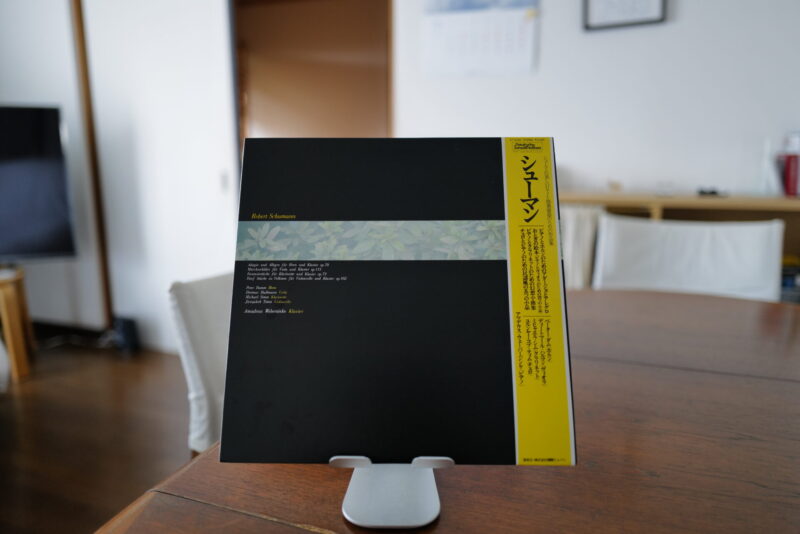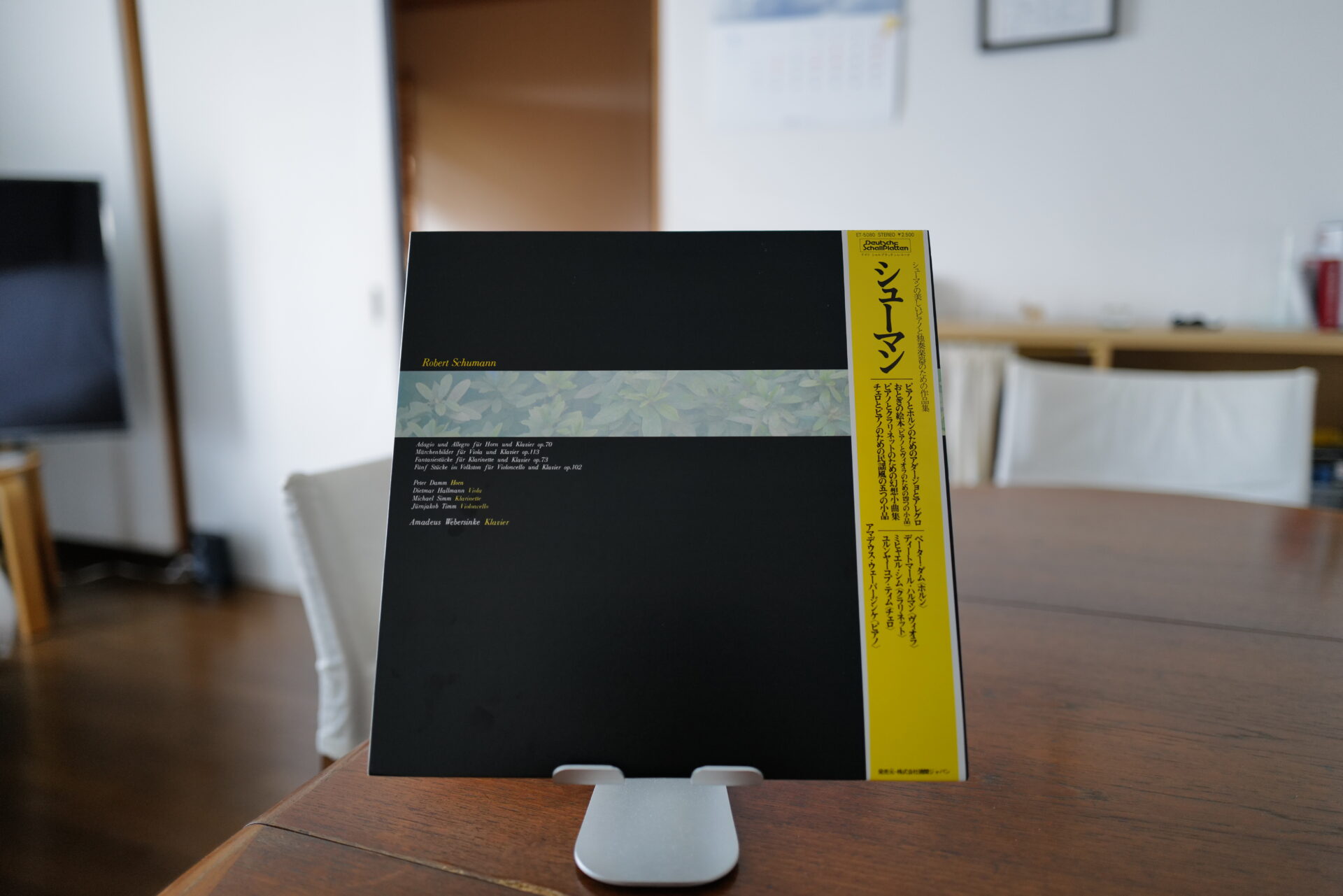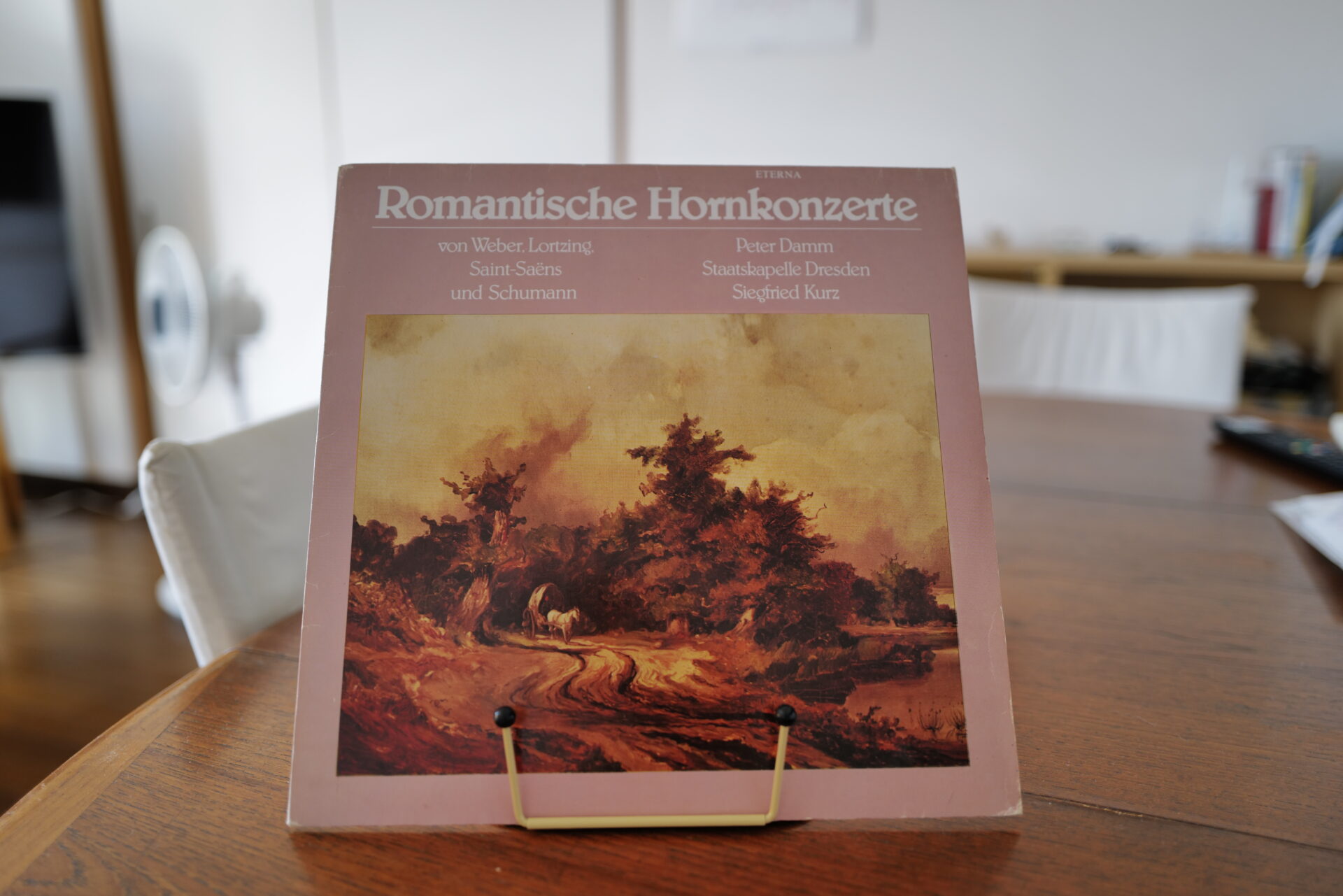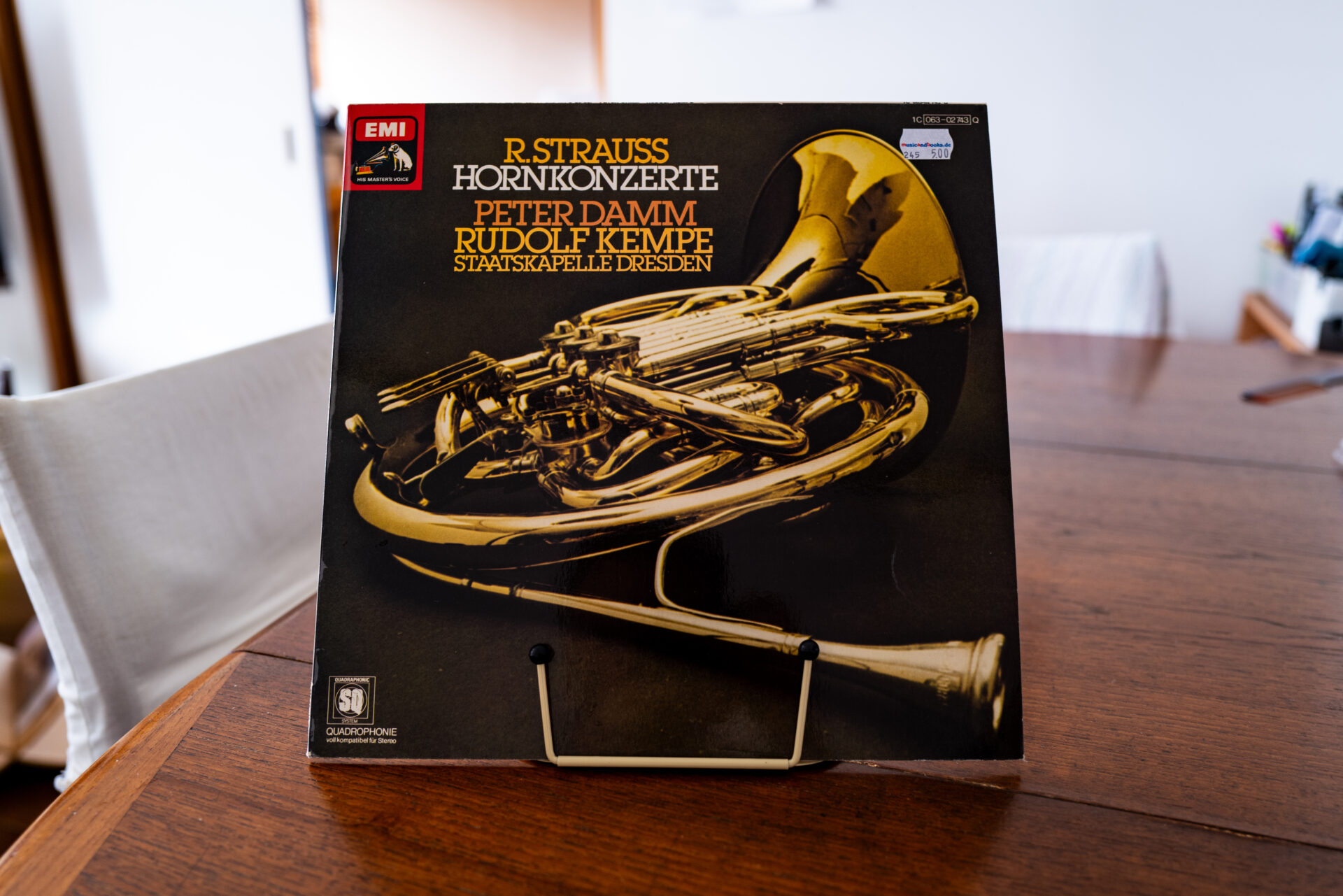
My master has quit his job. I’m filled with anxiety, wondering what will happen to my dog food expenses. But my master, oblivious to my worries, seems to be enjoying himself every day. Sometimes he’s home, and other times he suddenly goes off on a trip, making it hard to predict his whereabouts. I haven’t been able to relax and listen to my master’s records, and the start of the new season has been delayed.
For the first track of “Season 3,” I’ve straightforwardly chosen a famous horn piece. Since it’s been a while, Schumann’s “Adagio and Allegro, Op. 70” is perfect for “starting slowly.” It’s a well-known masterpiece that every horn player is familiar with.
Schumann composed this work in 1849. This year was a “horn harvest” year, during which other famous pieces for horn were also composed, such as the “Konzertstück for Four Horns, Op. 86” and the “Hunting Song for Male Voices with Four Horns, Op. 137.”
And another important point is that Schumann composed these masterpieces in Dresden. Unfortunately, the Schumanns didn’t have a good relationship with Dresden at the time. However, if Peter Damm had been performing in Dresden back then, Schumann might have stayed in Dresden, his mental illness might have healed, and he surely would have composed even more famous horn pieces.


Player and Recording
Piano : Amadeus Webersinke
Horn :Peter Damm
Recording date:November 1-7, 11-30, ( Peter Damm 39 years old)
Recording Venue:Lukas Kirche, Dresden
My favorite
As any horn player knows all too well, this piece is quite challenging because the Adagio section features a very high F. It’s often said that “Schumann wasn’t very skilled at writing for wind instruments,” but perhaps he composed exactly what he envisioned, without considering the limitations or convenience of the players.
When the Adagio ends and the Allegro begins, the musical mood shifts dramatically to become passionate and intense. Listening to it again after a while, I realized that the piano in this piece isn’t just accompanying the horn. The piano and horn intertwine, creating a single unified piece of music. Peter Damm plays with a wonderful sense of knowing when to come forward and when to hold back, beautifully highlighting Webersinke’s exquisite piano playing.
In the Allegro, the melody from the first movement of Mendelssohn’s “String Quartet No. 5 in E-flat major, Op. 44 No. 3” is quoted and appears repeatedly. Mendelssohn had a deep connection with the Schumanns and sadly passed away at the young age of 38, two years before this piece was composed. Perhaps knowing Schumann’s feelings for his deceased friend adds an extra layer of emotional impact to Peter Damm’s fervent performance.
(From Mendelssohn’s String Quartet No. 5, 1st movement.)



So this masterpiece was like a “monument of friendship” from Schumann!



